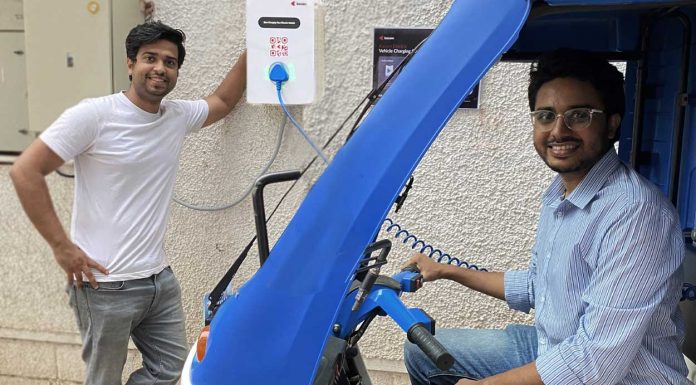Electric vehicle (EV) charging station startup Kazam has raised Rs 7 crore in a seed round led by Inflection Point Ventures. The funds raised will be used for product development, ramping up sales, operations, and marketing.
Kazam solutions are focused on providing affordable and smart electric vehicle charging stations that are built in India. So far the company has set up over 30 charging stations in 5 states including Karnataka, Maharashtra, Delhi, Telangana, and Tamil Nadu.
“Electric Vehicles, especially 2W & 3W are growing at a rapid pace and Kazam has a solution for all the EV charging needs for fleet operators, home charging, and public charging. We expect to put 10,000 charging stations in 2021-22 and build a robust team to support it,” said Akshay Shekhar, co-founder of Kazam.
The company claimed that in a short span of 5 months, it has gone deep into the EV ecosystem — building the hardware & software tech for affordable and smart EV charging infrastructure along with an open architecture to help the charging hardware manufacturers to use the protocols and APIs.
“In the last 5 years, the Government of India has announced multiple beneficial initiatives to increase the sales of EV vehicles. Many startups in electric mobility are scaling well and we have invested in quite a few. Thus, Kazam fits in organically as we believe with more electric mobility startups getting launched and scaled, the infrastructure and discovery need (especially charging the vehicles) will be critical in the overall success of this sector. Kazam's strong founding team has an in-depth understanding of technology and physical infrastructure needed to help the sector grow faster and this encouraged us to invest in the company,” stated Vinay Bansal, founder, and CEO, Inflection Point Ventures.
In 2019-20, India's EV sales totaled 3.8 lakh units, with the EV battery demand totaling 5.4GWh. Last fiscal year, electric two-wheelers were the most common in the entire segment and the sale of high-speed electric two-wheelers is expected to increase rapidly in 2020 as more companies obtain FAME-II certification. The Indian government is eager to improve EV infrastructure and the environment. Various national and state-level policies are currently being developed and implemented. The charging infrastructure specifications are being developed and enforced across the country, from the Bharat EV policy to state-by-state EV policies.











